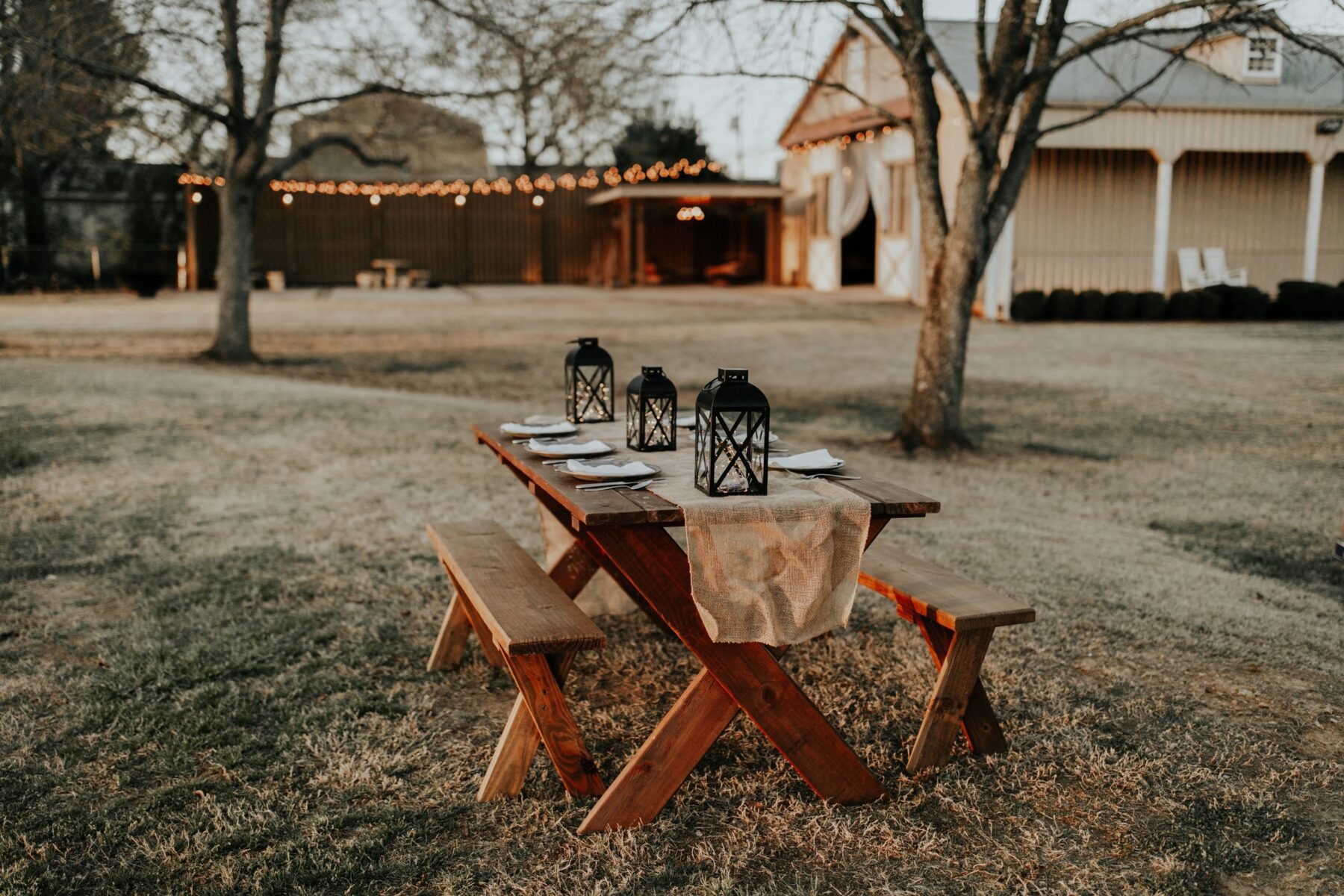Everyone must eat in order to stay alive. But it isn’t just the vitamins and minerals our bodies need that gives life; the very act of eating together sustains us. We were made to be together, and we were made to eat.
Kendall Vanderslice has made a career out of helping people do both of these things together well.
Food + People = Communion
There are two things Kendall has always loved, and three things that have mattered to her: God, people, and food, and her educational background reflects those passions. Kendall graduated with a bachelor’s degree in anthropology from Wheaton College and then began her career working as a baker. Because of her love of food, she embarked on a master’s degree in gastronomy at Boston University, where her interests in people and food collided. She spent a lot of time thinking about how our relationship with food shapes us and defines our family, our place, our sense of belonging, and our experience in the world.
Another aspect of food and community kept surfacing in her studies. “I realized we were talking about the Eucharist in these classes all of the time,” said Kendall. “We couldn’t talk about food without this ritual coming up.”
Every Sunday morning, Kendall left the bakery to go to church. “I would take communion with bread dough still stuck to my arms,” Kendall said.
Kendall realized that she was one of the few people who participated regularly in Eucharist, which made her wonder, “What would happen if I approach this thing that I do every week from the perspective of a food scholar?”
She began to study the connection between these two breads to see the academic, practical, and theological intersections of food. Kendall studied a church in the western suburbs of Boston that called themselves a “dinner church.” They met on Thursday nights over a meal.
Kendall’s research asked the questions, “How does eating together as a church change our understanding of community? How does it change how we understand God with us?”
Kendall went on to pursue a master’s degree in theological studies from Duke Divinity School. From all of her research, Kendall published her first book, We Will Feast: Rethinking Dinner, Worship, and the Community of God, which explores different churches that eat together in various ways and how sharing a full meal together can change our communion experience. We Will Feast was published in May 2019. The book celebrates the joy of intentional community gathered around a table in worship.
And then Covid hit.
Suddenly, all of the activities that Kendall had advocated for in We Will Feast became something dangerous. Covid led her to ask a new question: How does isolation, loneliness, insecurity, and instability point to the need for an embodied community, and how can that provide us a path toward healing as we head out (hopefully) of this Covid time?
Edible Theology was born out of those questions.
Edible Theology
Kendall wants to help churches, families, and individuals discover the simplicity and the joy that God has for us around the table. Edible Theology offers a whole host of ways to engage with Scripture and each other around food to see God’s movement through meals. Kendall hosts the podcast, Kitchen Meditations, which offers “reflections on cooking to help you taste God’s goodness in every bite.” She also sends a weekly newsletter with reading resources, recipes, and prayers.
Edible Theology has several curriculum sequences for children, families, teens, and churches. “Bake with the Bible” is a six-lesson curriculum that can be completed around the breakfast or dinner table. With variations for different age groups and settings, each lesson in “Bake with the Bible” includes a simple recipe, discussion questions, and reading recommendations, as well as Scriptural and cultural-historical lessons.
Kendall is also working on a new program that they hope to release this fall. “Worship at the Table” is intended for use with a group of adults who want to gather once a week or once a month for six meetings. The study looks at the way food tells stories. Scripture tells stories. Bred tells stories about God. Our own meals tell stories about ourselves. Communion tells a story about what is to come. The material provides discussion questions as well as practical tips for gathering and building community together around the table.
“We’re so often hunting for ways to get closer to God and build community, looking for some big extravagant experience, but actually it’s this really simple practice,” said Kendall. The idea of hosting someone in our homes can be intimidating: Lives are busy, what if I’m not a good enough cook, what if my house isn’t big enough or good enough, what if hard conversations come up around the table? All of these questions and concerns are legitimate anxieties we all have… and yet when we entertain these worries, we cut ourselves off from the very thing we need most.
“Gathering itself helps to overcome those barriers,” said Kendall. “Oftentimes we treat community as this nice but not necessary byproduct of gathering for worship. We think the point of church is The Worship. We stand side-by-side and may or may not get to know the people standing in the pews around us. But community is actually central to living out the communion meal we share. It’s about our relationship to one another, not just our relationship with God. God is at work through community and in community to meet our spiritual, emotional, and tangible needs.”
It’s time to do away with the lie that gathering around the table with other people is extra, so we can push it to the margins of our lives. It is a necessity. When we gather around the table together, God meets all of our needs—spiritual, emotional, and tangible.
Learn more about Edible Theology, download curriculum, sign up for the newsletter, follow on Instagram, or listen to the podcast to find more ways to connect the food we eat to the relationships we need with each other and with God.





 Copyright
2024
Root and Vine
Copyright
2024
Root and Vine